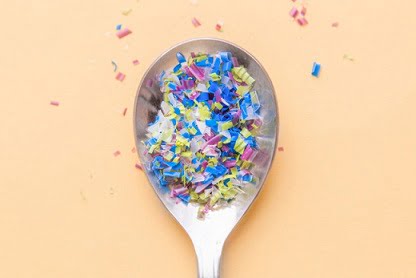We all are very much aware that plastics are found literally everywhere. From your toothbrush and your drinking glass to the packaging on your food and the protective case on your phone, think about all of the times in just a day that you use plastic.
Microplastics smaller than a sesame seed
Are you in a Plastic free school..?! Oh…yeah….know more about it. Once plastics leave our hands, they break down into smaller particles known as microplastics. Smaller than a sesame seed, microplastics can easily be ignored or overlooked. Because of this, they have unknowingly made their way into almost every aspect of our daily lives.
Each year, we pollute our water systems with tonnes of plastic. This plastic eventually makes its way to our oceans. While some of the plastic that washes up on our beaches .This can be picked up and sorted or sent for recycling. Other pieces will join one of the five great garbage patches, large islands of plastic debris floating in our oceans. A few other pieces will become micro plastic in our oceans.
Plastic into microplastics
The ocean environment and UV rays from the sun break down large pieces of plastic into microplastics. Due to their small size, it becomes much easier for them to mingle with ocean life. Fish will ingest them by accident while feeding, Being at the bottom of the food chain, other fish will often eat this plastic too. Besides our oceans, microplastics can be found in every form of water we use, including tap water. Water…! how we take this precious substance for granted.
Microplastics are also in humans
Unfortunately, these microplastic particles are not filtered out in many water processing systems. They are then incorporated into anything we use – from brushing our teeth to washing our vegetables. Various studies have found that ‘microplastics are also in humans’ digestive tracts. It is very unclear how are we ingesting them. Microplastic could be coming from our local environment, being airborne and falling into our food. They could also be coming from our drinking water, food or packaging, especially bottled water.

Microplastic work in a state of togetherness with its non decomposable / long term decomposition property. The packaging we use, our cosmetic products and even in the clothes we wear, all add up. It is easy to see there is an overabundance of plastic in our lives. We can make changes to reduce plastic in our environments reflecting the saying “Practice makes a man perfect.” Plastic free school is one among the initiative to go green.
“We need to live not just for ourselves, but for the whole humanity, for the trees, birds and all the living beings. Plastic pollution free living is the easiest way to make that successful.”
